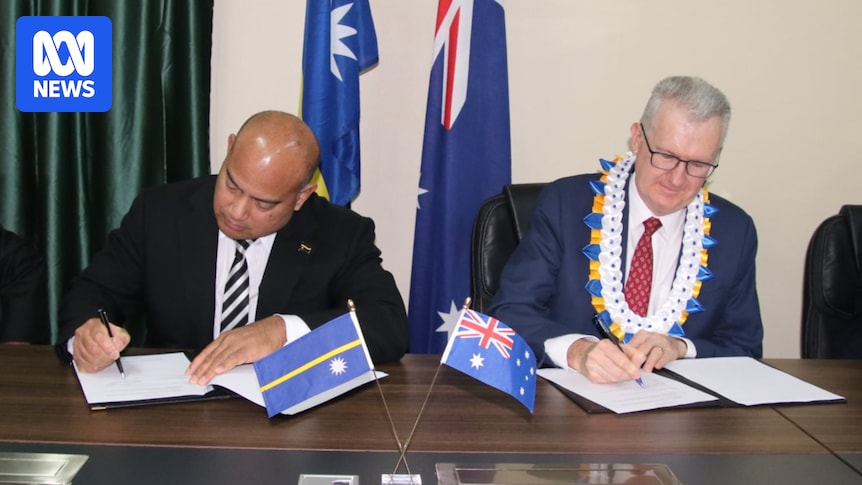
A fourth member of the NZYQ cohort has been placed back in immigration detention after receiving a Nauruan visa, as the Australian government accelerates its plan to deport hundreds of convicted criminals to Nauru. The individual was detained on Thursday and could be among the first to be transferred under a multi-billion-dollar agreement finalized last month.
The agreement involves 358 former detainees, known as the NZYQ cohort, who were released into the community following a High Court decision nearly two years ago that deemed indefinite detention illegal. Since then, the government has been seeking ways to remove these non-citizens, many of whom have been convicted of violent offenses. The third-country resettlement plan was initially announced in February.
Legal Challenges and Legislative Changes
Initially, three members of the cohort were granted Nauruan visas as a test of new powers, but their deportation was delayed due to legal challenges. However, after the Labor government swiftly enacted revised laws last month in response to these challenges, newly issued visas will not benefit from a stay of deportation.
“It’s not complex; if your visa has been cancelled, leave,” Home Affairs Minister Tony Burke stated on Thursday.
Financial Implications for Nauru
Under the memorandum of understanding, which remains partially undisclosed, Nauru will receive $408 million upon the arrival of the first deportee. This is the initial payment, with Australia committing an additional $70 million annually over the 30-year duration of the agreement if a significant number of the cohort is resettled.
The total cost of the deal could reach approximately $2.5 billion, translating to over $7 million per person if all members of the cohort are relocated to Nauru.
The majority of the funds will be placed into a trust to generate interest, offering Nauru substantial long-term financial benefits. Nauruan budget documents suggest the deal is expected to “generate large-scale revenues over the long-term.”
Community and Legal Perspectives
The hundreds of deportees are anticipated to live in the community on the island, which has a population of around 12,000, without being re-detained upon arrival. The timeline for applying for additional visas remains uncertain, though Home Affairs officials have indicated a gradual relocation process.
“We want that to succeed in a way that’s sustainable for Nauru, which doesn’t mean moving a really large number of people in one hit,” Clare Sharp, head of immigration, explained during a Senate hearing this month.
Meanwhile, the plan has faced strong opposition from lawyers, advocates, and members of the crossbench. A Senate committee dominated by Labor criticized the new laws enhancing deportation powers, arguing they were not “sufficiently” justified in a report following the legislation’s rapid passage through parliament.
Historical Context and Future Implications
These legislative changes, which apply retroactively, remove the obligation for the government to provide procedural fairness in cases involving third-country reception arrangements. Mr. Burke has defended the laws, stating they are necessary to prevent non-citizens from using procedural fairness provisions to “frustrate their removal” from Australia, primarily affecting those who have exhausted all legitimate avenues to remain.
In 2023, the High Court overturned a two-decade precedent that permitted the indefinite detention of non-citizens who could not be deported to their home countries. This decision, centered on the case of an individual known only as NZYQ, led to the release of hundreds of detainees who had failed character tests but had no viable deportation prospects. All had criminal convictions, many for violent offenses, and had served their sentences.
The unfolding situation raises significant questions about Australia’s immigration policies and the ethical implications of third-country resettlement agreements. As the government moves forward with its controversial plan, the legal and humanitarian dimensions of these deportations will likely continue to provoke debate and scrutiny.







